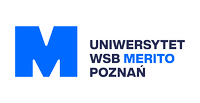Parents thought it was enough to bring their children into the world and to shower them with riches, but had no interest in their education. There are severe laws against people who expose their children and abandon them in some forest to be devoured by wild animals. But is there any form of exposure more cruel than to abandon to bestial impulses children whom nature intended to be raised according to upright principles to live a good life? If there existed a Thessalian witch who had the power and the desire to transform your son into a swine or a wolf, would you not think that no punishment could be too severe for her? But what you find revolting in her, you eagerly practise yourself. Lust is a hideous brute; extravagance is a devouring and insatiable monster; drunkenness is a savage beast; anger is a fearful creature; and ambition is a ghastly animal. Anyone who fails to instil into his child, from his earliest years onwards, a love of good and a hatred of evil is, in fact, exposing him to these cruel monsters.
Erasmus, “On Education for Children,” The Erasmus Reader (University of Toronto Press: 1990), p. 74

